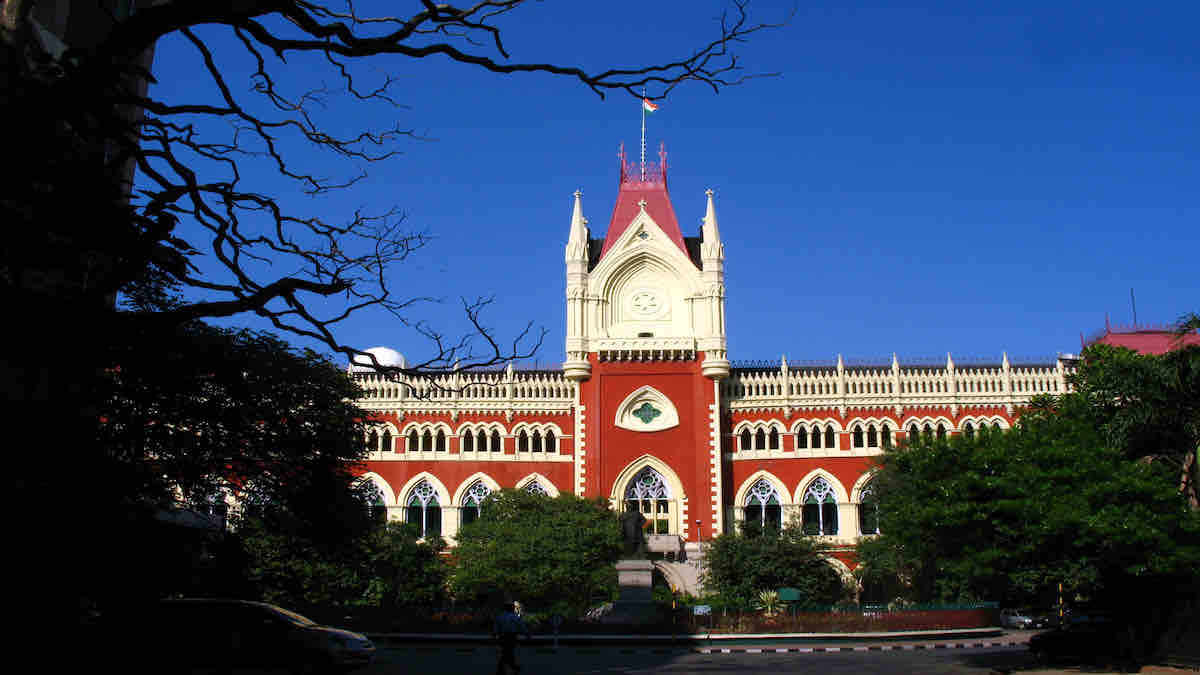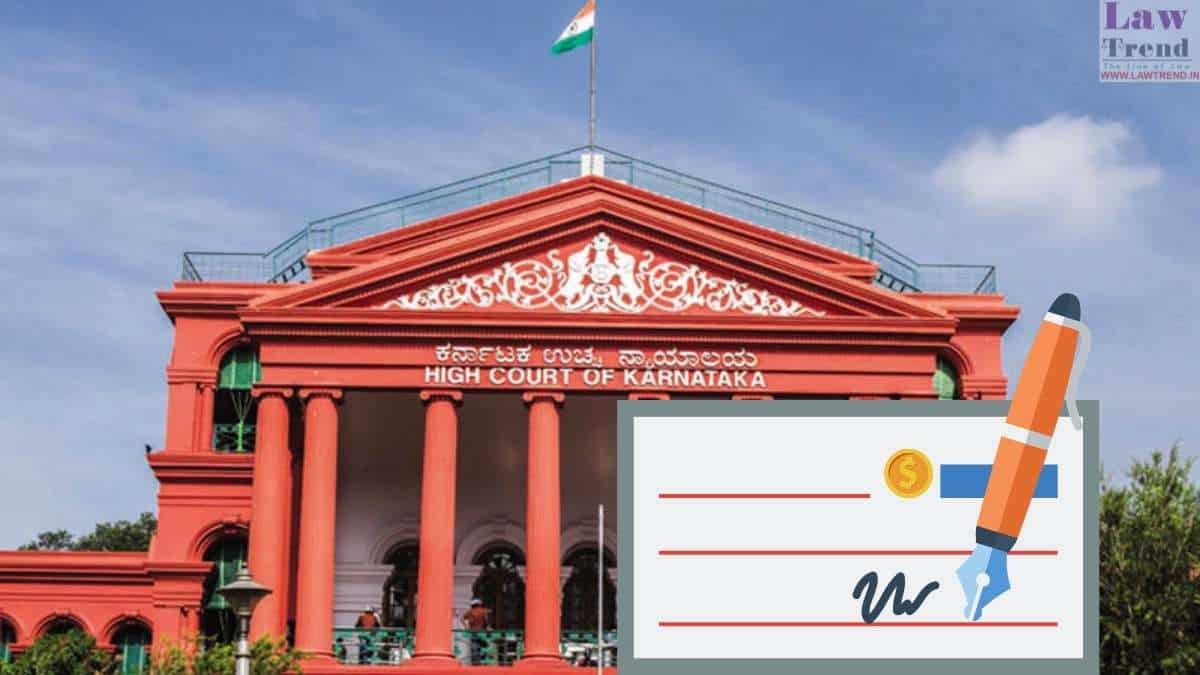മീഡിയേഷന്റെ മേന്മകൾ
ഒന്ന്
മീഡിയേഷൻ സംസാരമാണ്. ശബ്ദമാണ്. കമ്മ്യൂണിക്കേഷൻ ആണ്. ആശയവിനിമയമാണ്. ചോദ്യമാണ്. ഉത്തരമാണ്.
ആരു തുടങ്ങണം. എവിടെ തുടങ്ങണം
എപ്പോൾ തുടങ്ങണം. എങ്ങിനെ തുടങ്ങണം. എന്നിങ്ങനെയുള്ള ധാരാളം സംശയങ്ങൾക്ക് ഉത്തരം നൽകുന്നത് മീഡിയേഷൻ ആണ്.
പുതിയ മോട്ടോർ വെഹിക്കിൾ നിയമപ്രകാരം ഇൻഷുറൻസ് കമ്പനി ആദ്യം പറയണം എത്ര രൂപ നഷ്ടപരിഹാരമായി നൽകാൻ സാധിക്കും എന്ന്.
ഈ സ്വാഗതാർഹമായ തുടക്കം നമ്മുടെ നിയമവ്യവസ്ഥയ്ക്ക് വളരെ ശുഭകരമായ ഭാവി സമ്മാനിക്കുന്നു.
കോടതിയുടെ സങ്കല്പവും ഇൻഷുറൻസ് കമ്പനിയുടെ ഔദാര്യവും തർക്കവും മനസ്സില്ലായ്മയും എതിർപ്പും കാത്തിരിക്കാതെ ഇൻഷുറൻസ് കവറേജ് ലഭിക്കുന്ന വ്യക്തിക്ക് എത്ര രൂപ ആണ് ലഭിക്കുക എന്നത് വ്യക്തമാക്കാനുള്ള ബാധ്യത ഇൻഷുറൻസ് കമ്പനിക്കുണ്ട് എന്നത് തന്നെ ഒരു പുതിയ തുടക്കമാണ്.
ഒരു അപകടം സംഭവിച്ചു കഴിഞ്ഞാൽ പോലീസ് എഴുതുന്ന പ്രഥമ വിവര റിപ്പോർട്ട് എന്ന് പറയുന്നത്, വാഹന അപകടം സംബന്ധിച്ച് ലഭ്യമായ വിവരങ്ങളാണ്.
പോലീസ് സ്റ്റേഷനിൽ നിന്നും ഈ പ്രഥമ വിവര റിപ്പോർട്ട് കോടതിയിലേക്ക് ലഭിക്കുന്നു.
പുതിയ നിയമ പ്രകാരം അപകടം ഉണ്ടായിക്കഴിഞ്ഞാൽ ആക്സിഡൻറ് ഇൻഫർമേഷൻ റിപ്പോർട്ട് മോട്ടോർ ആക്സിഡൻറ് ക്ലെയിംസ് ട്രൈബ്യൂണിലേക്ക് അയക്കേണ്ടത് ആയിട്ടുണ്ട്.
ഇപ്രകാരം ലഭിക്കുന്ന എ ഐ ആർ പ്രകാരം ഇൻഷുറൻസ് കമ്പനി എത്ര രൂപയാണ് നഷ്ടപരിഹാരം നൽകാൻ ഉദ്ദേശിക്കുന്നത് എന്ന് അപകടം സംഭവിച്ച വ്യക്തിയെയും അറിയിക്കണം.
ഇത്രയുമായാൽ കാര്യങ്ങൾ എളുപ്പമായി.
ഇൻഷുറൻസ് കമ്പനി അറിയിക്കുന്ന പ്രതിഫലം സ്വീകാര്യമാണെങ്കിൽ ഉടൻതന്നെ ആ പണം ലഭിക്കുന്നു എന്നതാണ് ഏറ്റവും സുപ്രധാനമായ നേട്ടം.
ഈ സംഖ്യ ന്യായവും യുക്തവുമാണ് എന്ന് അറിയുവാൻ ഒരു അഭിപ്രായം ആരാ മീഡിയേഷനിലെ ന്യൂട്രൽ ഇവാലുവേഷൻ എന്ന നിലയിൽ ഒരു സ്വതന്ത്ര അഭിപ്രായം ലഭ്യമാക്കിയാൽ നിയമപദേശത്തോടൊപ്പം മൂന്നാമതൊരു നിഷ്പക്ഷ മതിയായ വിദഗ്ധന്റെ അഭിപ്രായവും കൂടി ചേർത്ത് വാഹന അപകടം വഴി ലഭിക്കുന്ന നഷ്ടപരിഹാരം സ്വീകരിക്കുവാൻ വ്യക്തികൾക്ക് സാധിക്കും.
നഷ്ടപരിഹാരം സംബന്ധിച്ചുള്ള നിയമപരമായ സ്ലാബുകളും നിർദ്ദേശങ്ങളും പ്രസിദ്ധീകരിക്കുന്നതും തർക്കം എളുപ്പത്തിൽ പരിഹരിക്കുവാൻ സഹായകമാണ്.
അപകടവും നഷ്ടപരിഹാരവും മറ്റും സംബന്ധിച്ചുള്ള വിവരങ്ങളോടൊപ്പം നിയമ വ്യവസ്ഥയും കാർക്കശ്യവും ഹെൽമെറ്റ് ധരിക്കേണ്ടതിന്നു
ള്ള ആവശ്യകത ബോധവൽക്കരിക്കേണ്ടതും സാമൂഹിക പ്രതിബദ്ധത തന്നെയാണ് മോട്ടോർ ആക്സിഡൻറ് എന്ന നിലയിൽ ഒരു മരണം സംഭവിച്ചാൽ 5 ലക്ഷം രൂപ നഷ്ടപരിഹാരമായി അന്ധരാവകാശികൾക്ക് ലഭിക്കുന്നു.
റോഡിലെ അപകടങ്ങൾ കുറയ്ക്കുന്നതിന് നടത്തുന്ന ശ്രമങ്ങൾ എല്ലാം സാമൂഹ്യ ക്ഷേമ പ്രവർത്തനങ്ങൾ ആയി കരുതി രാജ്യത്തിൻറെ സാമ്പത്തിക നേട്ടത്തിന് ഉപകരിക്കുന്നു എന്ന് മനസ്സിലാക്കുന്നതിന് യുവജനങ്ങളെ സ്കൂളുകളിലും കോളേജിലും മറ്റും സംഘടനകളുടെ നിയമ അവബോധം നൽകേണ്ടത് ആവശ്യമാണ്.
രണ്ട് വ്യവഹാര നിവാരണം വ്യക്തമായ ഒരു മേന്മയാണ് മീഡിയയിലൂടെ അവസാനിപ്പിക്കപ്പെടുന്ന തർക്കങ്ങൾ കോടതിയിലേക്ക് വീണ്ടും അപ്പീൽ നൽകി തുടരാൻ ആവില്ല എന്ന കാര്യം അതായത് അന്തിമ തീരുമാനം ലഭിക്കുന്നതോടെ കോടതിയിൽ വ്യവഹാരം നടത്തുവാനുള്ള സാധ്യത ഇല്ലാതാവുകയും തുടർ നടപടികൾ ആവശ്യമില്ലാത്തതിനാൽ വ്യവഹാരം കോടതിക്ക് പരിഗണിക്കേണ്ടതായി വരികയുമില്ലാതെ വ്യവഹാരങ്ങളുടെ എണ്ണം കുറയുവാൻ സഹായിക്കുന്നു രണ്ട് പാർട്ടികളും പരസ്പരം ചർച്ച ചെയ്തു വരുംവരായികളും പോരായ്മകളും മനസ്സിലാക്കി അന്തിമമായി തീരുമാനിക്കുന്നത് ആയതിനാൽ ഇവർ നേരിട്ട് കൈക്കൊള്ളുന്ന വ്യവസ്ഥകൾ ഉൾക്കൊള്ളുന്നതായ മീഡിയേഷൻ തീരുമാനം തുടർന്ന് കോടതിയിൽ വ്യവഹാരമായി തർക്കം ഉന്നയിക്കാൻ ആവില്ല എന്ന നിരീക്ഷണം വ്യവഹാരം നിവാരണത്തിന് സഹായകമാകുന്നു മൂന്ന് രണ്ട് കക്ഷികൾ തമ്മിലുള്ള വിവിധങ്ങളായ തർക്കങ്ങൾ എല്ലാം വിവിധ കോടതികളിൽ നിലനിൽക്കുന്നവ പോലും ഒരു മീഡിയയിലൂടെ സാന്നിധ്യത്തിൽ എടുക്കുന്ന തീരുമാനപ്രകാരം എല്ലാ തർക്കങ്ങളും വ്യവഹാരങ്ങളും അവസാനിപ്പിച്ചുകൊണ്ട് വ്യവസ്ഥ ചെയ്യുവാൻ സാധിക്കുന്നു എന്നതും മീഡിയേഷൻ മാത്രം സവിശേഷതയായ മേന്മയാണ് അഡ്വാൻറ്റേജ് ആണ്.
4
ഇരുവിഭാഗവും ഒരുമിച്ചിരുന്ന് മുഖാമുഖം ചർച്ച ചെയ്യുമ്പോൾ കക്ഷികൾക്ക് ലഭിക്കുന്ന ഏറ്റവും വലിയ ഗുണം അഥവാ അഡ്വാൻറ്റേജ് എന്നത് ഇരുഭാഗം അഭിഭാഷകരും തങ്ങളുടെ ന്യായവും യുക്തവും നിയമവും പ്രഖ്യാപിക്കുമ്പോൾ കക്ഷികൾക്ക് തങ്ങളുടെ വ്യവഹാരത്തിന്റെ പോരായ്മകളും ഗുണമേന്മകളും മനസ്സിലാക്കുന്നതിന് ആവശ്യമായ വിവരങ്ങളെല്ലാം ലഭിക്കുന്നു എന്നതാണ് ഇതിൻറെ വളരെ സുപ്രധാനമായ ഒരു നന്മ എന്ന് പറയാം.
5
ഒരാൾക്ക് എന്താണ് വേണ്ടത് എന്ന് അയാൾ തന്നെ പറയുന്നതും പ്രഖ്യാപിക്കുന്നതും വഴി സ്വന്തം വ്യവഹാരത്തിന്റെ പരിധി നിശ്ചയിക്കപ്പെടുകയും തീരുമാനം കൈക്കൊള്ളുവാനുള്ള സാധ്യതയും സമ്മതം അറിയിക്കുവാനുള്ള അവസരവും ഇരു ഭാഗത്തിനും ലഭിക്കുന്നു.
മീഡിയേഷണൽ പങ്കെടുക്കേണ്ടത് തർക്കത്തിന്റെ തീരുമാനം കൈക്കൊള്ളുവാൻ അധികാരമുള്ള വ്യക്തിയാണ്.
അധികാരം എന്നതിന് വിട്ടുവീഴ്ച ചെയ്യുവാനും പരിഹാരം കൂടുതലായി നൽകുവാനും അധികാരമുള്ള വ്യക്തി എന്നുവേണം മനസ്സിലാക്കുവാൻ
ഇൻഷുറൻസ് കമ്പനികളുടെ
നോഡൽ ഓഫീസർമാരായി നിയമിക്കപ്പെടുന്നവർ വീണ്ടും ഉന്നത അധികാരികളിൽ നിന്നും അനുവാദം വാങ്ങേണ്ട വിധം അധികാരം ഇല്ലാത്തവ൪ ആയിരിക്കരുത്.
സ്വന്തം നിലയിൽ തീരുമാനമെടുക്കുവാൻ അധികാരം ഉള്ളവർ മീഡിയേഷനിൽ നേരിട്ടോ ഓൺലൈനായോ പങ്കെടുത്ത് വേണം സെഷനുകൾ പുരോഗമിക്കുക.
ആറാമത്
മീഡിയേഷന്റെ മേന്മയായി കാണാവുന്നത് ഒരു കരാറിനെ ഉടനെ തന്നെ പ്രാബല്യത്തിൽ വരുത്തുവാനുള്ള മീഡിയേഷൻ മീഡിയേഷൻ ഉള്ള കഴിവാണ്.
അതായത് പരസ്പരം സമ്മതിച്ചുകൊണ്ട് കൊടുക്കുവാനുള്ള സംഖ്യ എത്ര ദിവസത്തിനകം കൊടുത്തു തീർക്കാം എന്ന കാര്യവും നിശ്ചയിക്കപ്പെടുവാൻ സാധിക്കുന്നു.
ഇത് അപേക്ഷകന് ലഭിക്കേണ്ട നഷ്ടപരിഹാരം എത്രയും വേഗം ലഭിച്ച് തർക്കം അവസാനിപ്പിക്കുവാൻ സഹായിക്കുന്നു.
ഏഴാമത്
ഒരു സുപ്രധാന മേന്മയായി കരുതാവുന്നത് കാലതാമസം ഇല്ലാതെ ഏതാനും ദിവസങ്ങൾ കൊണ്ട് തന്നെ ഒരു വ്യവഹാരം അവസാനിപ്പിക്കാൻ സാധിക്കുന്നു എന്നത് തന്നെയാണ് .
സിവിൽ നടപടി നിയമങ്ങളും കോടതി ചിലവുകളും കോർട്ട് ഫീസു൦ ഒന്നുമില്ലാതെ മീഡിയേഷനിലൂടെ തർക്കം വേഗം പരിഹരിക്കപ്പെടുന്നു എന്നതാണ് മറ്റ് ചർച്ച പരിഹാരമാർഗ്ഗങ്ങളേക്കാൾ കൂടുതൽ ജനപ്രിയമാക്കുന്നത്.
എട്ടാമതായി മീഡിയേഷൻ നടത്തപ്പെടുന്നത് ഓരോ കക്ഷിയുടെയും സൗകര്യവും സമയവും അനുസരിച്ച് സമ്മേളിക്കേണ്ട സ്ഥലം നിശ്ചയിച്ചാണ് മീഡിയേഷൻ ചർച്ചകൾ നടത്തപ്പെടുന്നത് എന്നതിനാൽ ഒരു മീഡിയേഷനിൽ ഒരു തന്നെ കാലതാമസം ഇല്ലാതെ ഒന്നോ രണ്ടോ ദിവസം കൊണ്ടോ ആഴ്ചകൾ കൊണ്ടോ ഒരു തർക്കം പരിഹരിക്കാൻ സാധിക്കുന്നു എന്നത് നേടിയ വളരെ പ്രധാനപ്പെട്ട നേട്ടം തന്നെയാണ് ഓരോ തർക്കവും അവസാനിക്കുന്നത് വരെ ഒരേ മീഡിയേറ്റർ തന്നെയാണ് നടപടികൾക്ക് നേതൃത്വം നൽകുന്നത് എന്നതിനാൽ കക്ഷികളുടെ സൗകര്യപ്രദമായ തലവും സമയവും നിശ്ചയിച്ചുകൊണ്ട് എത്രയും വേഗം കരാറിൽ എത്തിച്ചേരുവാൻ സാധിക്കുന്നു. അഭിഭാഷകളുടെ സേവനം ഉപയോഗിച്ച് വ്യവസ്ഥകൾ ഫലപ്രദമായി രൂപീകരിക്കുന്നതിനാൽ നിയമപരമായി കോടതി മുഖാന്തിരം വിധി നടത്തി തർക്കം കോടതിവിധിയായി അവസാനിപ്പിക്കുവാനും ധന്യമായു൦ രമ്യമായും സമാധാനപരമായും ശത്രുത ഇല്ലാതെയും തർക്ക സംഗതികൾ പരിഹരിക്കുവാനും മീഡിയേഷനിൽ സാധിക്കുന്നു.
9)
ഒൻപതാമതായി.
മീഡിയേഷന്റെ മേന്മ എന്ന് പറയാവുന്നത് ഒരാൾക്ക് പറയാനുള്ളത് മുഴുവൻ മറ്റേയാൾ കേൾക്കുന്നു എന്ന് ഉറപ്പാക്കുകയും ഒരാൾ പറയുന്നത് മറ്റ് വിധത്തിൽ തടസ്സപ്പെടുത്താതെ നിശബ്ദതയിൽ കേട്ടുകൊണ്ടിരിക്കുകയും ചെയ്യുന്ന മര്യാദ പുലർത്തുന്നതോടെ മീഡിയേഷൻ പരസ്പര ധാരണയിൽ എത്തുവാൻ ഏറ്റവും എളുപ്പമുള്ള മാർഗ്ഗമായും മാന്യമായ സംവിധാനമായും ഉരു തിരിയുന്നു എന്നതാണ്.
10)
അവസാനമായി മീഡിയേഷന്റെ ഭാഗമായി പരസ്പരം കൈമാറുന്ന അഭിപ്രായങ്ങളും വ്യവസ്ഥകളും സ്വീകരിക്കുവാനും പിൻവലിക്കുവാനും വ്യത്യാസപ്പെടുത്തുവാനും ഇരുവർക്കും സാധിക്കുന്നു എന്ന് മാത്രമല്ല മീഡിയേഷനിൽ പറയുന്നതും സമ്മതിച്ചതും രേഖാമൂലം സമർപ്പിച്ചതും ആയ ഒരു സംഗതിയും കോടതിയിലോ അധികാരങ്ങളിലോ ആർക്കെങ്കിലും എതിരായോ അല്ലാതെയോ ഹാജരാക്കുവാനോ പ്രസിദ്ധീകരിക്കുവാനോ മീഡിയേഷൻ നിയമം അനുവദിക്കുന്നില്ല എന്നതും മീഡിയേഷൻ രഹസ്യാത്മകതയും മീഡിയേഷനിൽ സംബന്ധിക്കുന്ന എല്ലാവർക്കും ബാധകമാണ് എന്നുള്ളതും മീഡിയേഷൻ ഏറ്റവും നല്ല സമാധാനമാർഗമായി പരിഗണിക്കാൻ വഴി ഒരുക്കുന്നു.


